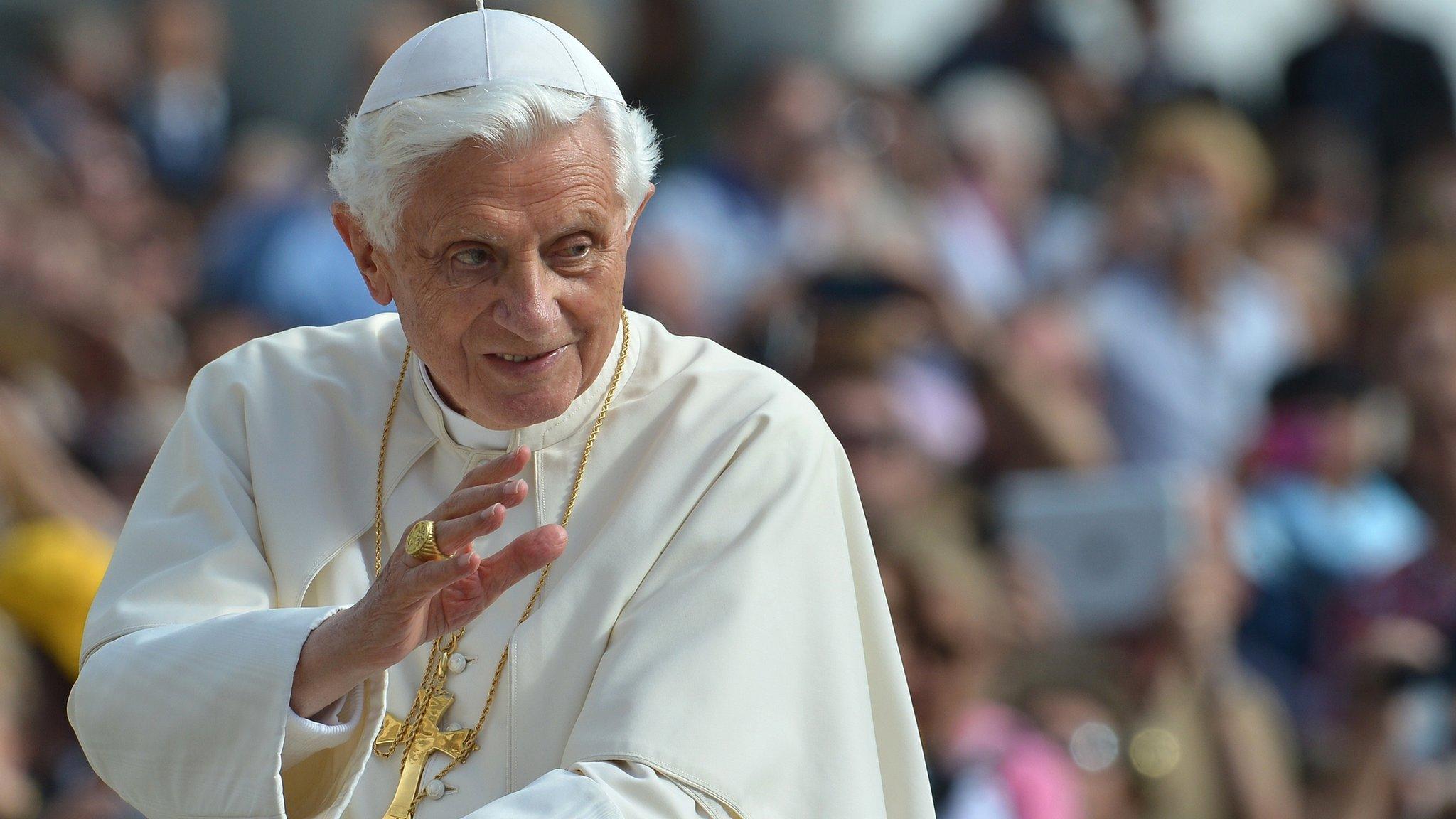Vatican leaks lift lid on Pope Francis's financial fight
- Published
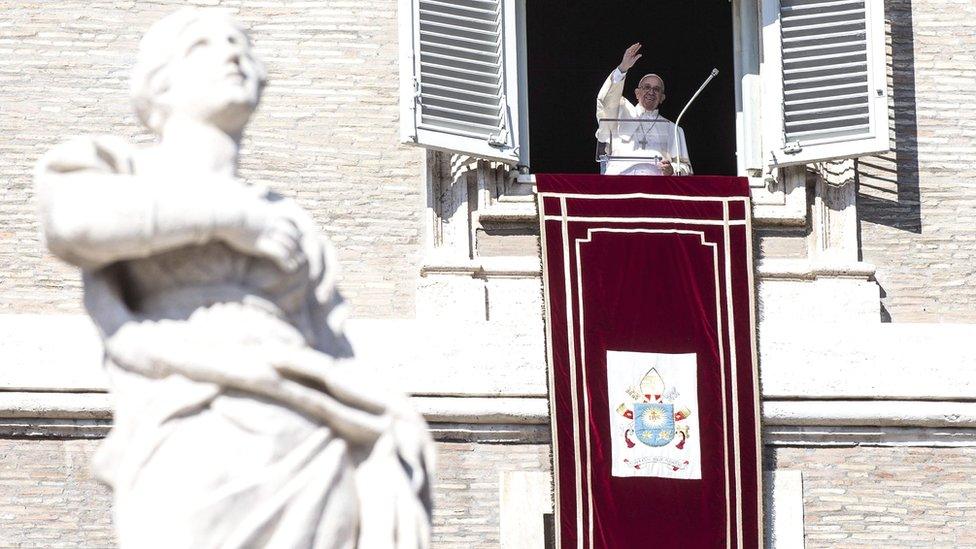
Pope Francis lives in relatively modest quarters in the Vatican
In the country he rules with absolute power, Pope Francis has chosen for himself one of the worst views.
The pontiff's small suite of rooms in the Vatican's Santa Marta guest house looks out beyond the enclave's walls on to a small street and the rear of a petrol station.
By contrast, a retired Italian cardinal living nearby enjoys a top-floor apartment in an old building with a view out over the Vatican itself.
Documents leaked to reporters allege that a charitable foundation paid €200,000 (£140,000) to renovate the apartment that Cardinal Tarcisio Bertone is using as his retirement home.
The leaks reveal that the Pope has been unable to persuade many of his Vatican officials to follow his own frugal example.
The documents themselves come from the private records of a reform commission set up by the Pope four months into his reign in 2013.
The Vatican accuses two former commission members, 54-year-old Monsignor Lucio Angel Vallejo Balda and Italian laywoman Francesca Chaouqui, 33, of leaking the documents.
Over the weekend, the gendarmerie placed the pair under arrest. Ms Chaouqui has protested her innocence - "I am not a crow," she protested on Twitter.
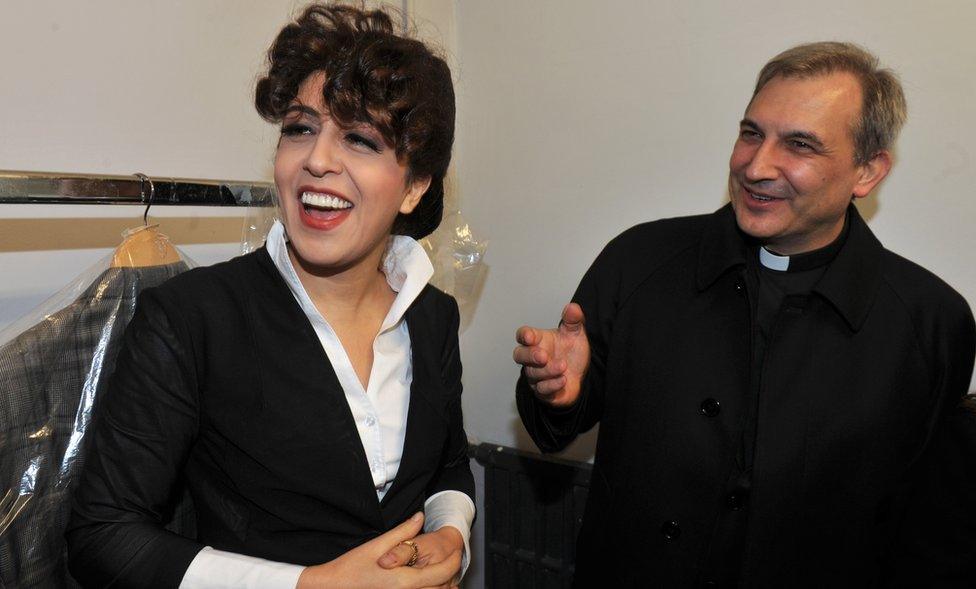
Ms Chaouqui and Monsignor Vallejo Balda were detained at the weekend over the theft of papal documents
Two Italian journalists, Gianluigi Nuzzi and Emiliano Fittipaldi, received the leaked documents and have now published books about them.
Mr Nuzzi has made a habit of disclosing secret Vatican documents.
In 2012 he published His Holiness - a book based on records thought to have been supplied by Pope Benedict's butler. The documents depicted a church hierarchy weighed down by infighting. Mr Nuzzi finds that the current Pope struggles with the same bureaucracy.
"Pope Francis fills squares," he says, "but he is not much loved by all the high prelates. You can see that this in the book - in the letters and the documents. So when the Pope wants to carry out his reforms - they're slowed down. The bureaucracy at the Vatican is very powerful. It's able to block change."
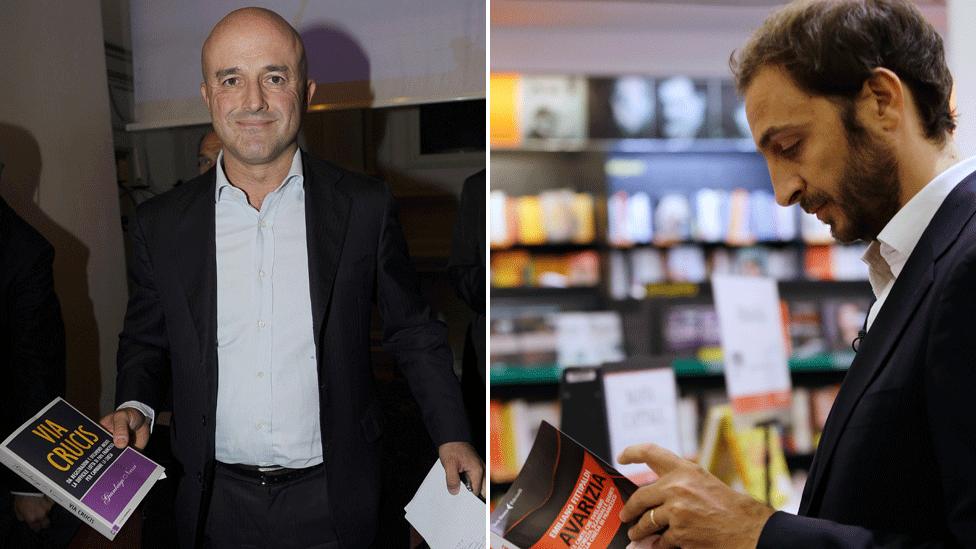
Books by Gianluigi Nuzzi (L) and Emiliano Fittipaldi (R) are both published on Thursday
In his own book, titled Avaricia - or Greed - Emiliano Fittipaldi details episodes of misspending.
"The Vatican is still very far from what Francis wants the Church to be - a poor church for the poor," Mr Fittipaldi says.
"In fact, I write about a very rich Church that manages money in a very ambiguous way, very far from what Francis would like. The Pope is trying to succeed, but there's strong resistance to him.
"One thing is what the Pope and the media say, but behind him there is a Church that does not want to renounce its economic might and its handling of money. That's why the book is called Greed."

In his own words: Pope Francis on Vatican spending
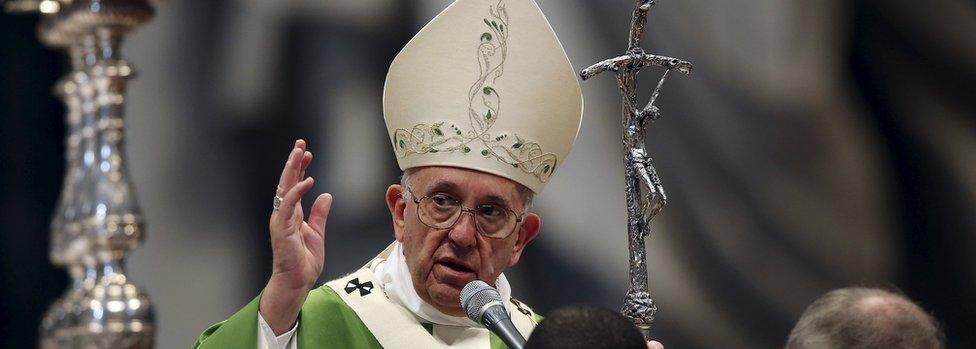
"Without exaggerating we can say that a large part of our costs are out of control. That is a fact. Spending on staff has grown 30% in five years. This is not right.
"An official told me, 'But they come with a bill and we have to pay.' No, we don't pay. If something is done without a tender, without authorisation, it doesn't get paid ...
"Our suppliers must always be companies that guarantee honesty and offer fair market prices, for their products and services. And several of them do not guarantee this."
Comments made by Pope Francis to senior cardinals on 3 July, according to transcripts published by Gianluigi Nuzzi

Economy-class pontiff
The leaked documents don't point to any wrongdoing by Pope Francis himself, and some Vatican experts argue that this scandal won't stop him from doing his job.
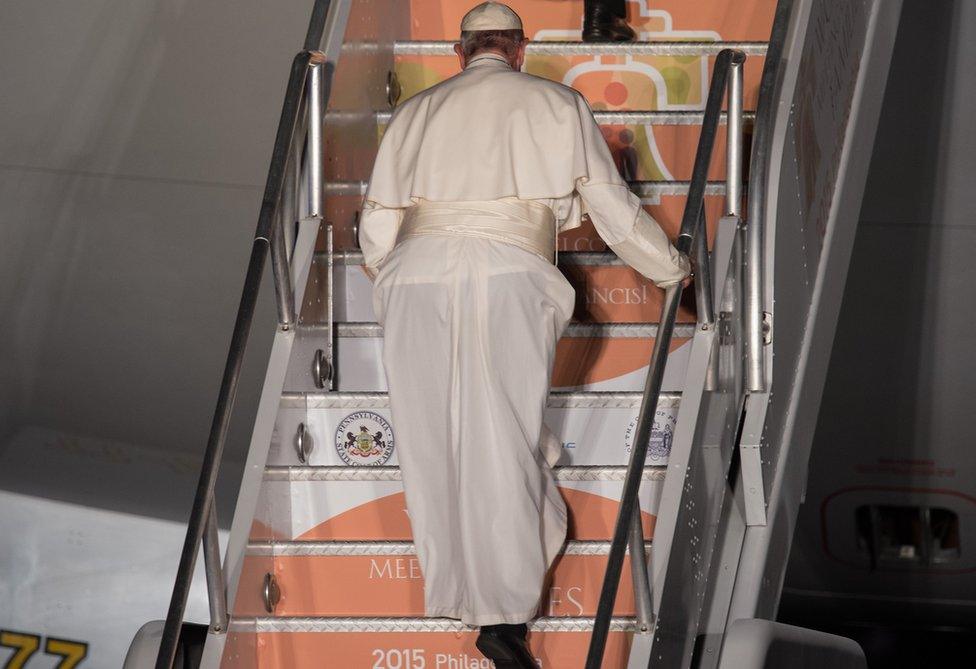
Pope Francis has in the past tried to set an example by travelling economy class
"I don't think that it's that important in this regard," says Robert Mickens, editor-in-chief of Catholic magazine Global Pulse.
"I think the Pope will be able to delegate running of the Roman Curia much in the same way that he deals with the diocese of Rome. His main goal is to change the attitude and the ethos around the world."
One accidental encounter of my own has shown me that the Catholic Church is reluctant to give up at least one of its long-standing spending habits: first-class travel.
In March 2013, the Vatican sent Cardinal Jorge Mario Bergoglio (as the Pope then was) a first-class ticket from Buenos Aires to Rome to attend the papal conclave.
The cardinal downgraded himself to economy class and made what turned out to be a one-way trip to Rome. Following his installation as Pope, Francis may have hoped that his former colleagues might follow him to the back of the plane.
Several weeks ago, I found myself at a check-in desk at Rome's Fiumicino airport. By chance, a number of senior clerics were flying out following the end of the Synod of Bishops in the Vatican.
"Is this where I check in for first class?" asked a cardinal from Latin America.
- Published2 November 2015
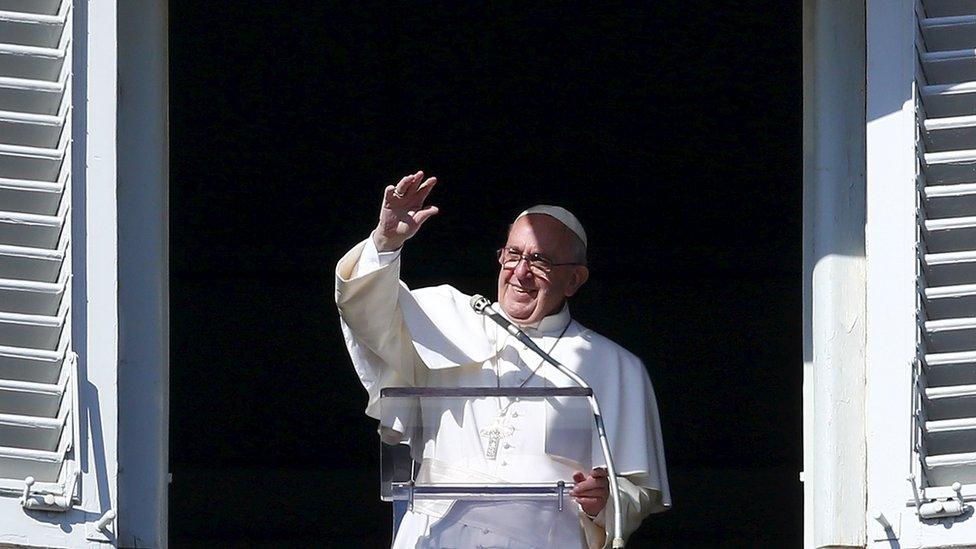
- Published22 December 2012
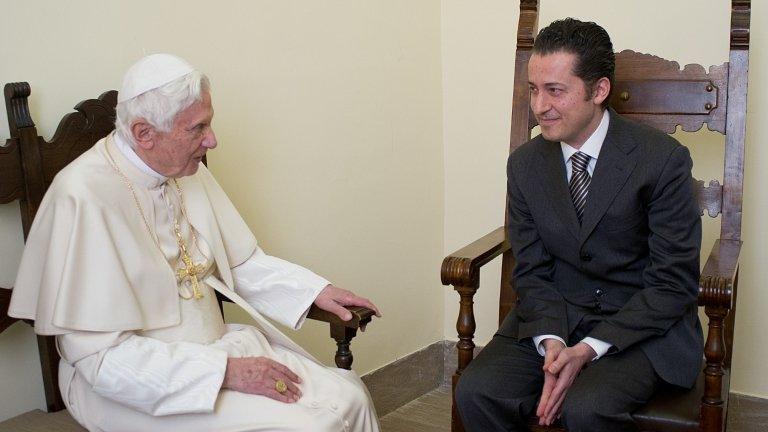
- Published10 November 2012
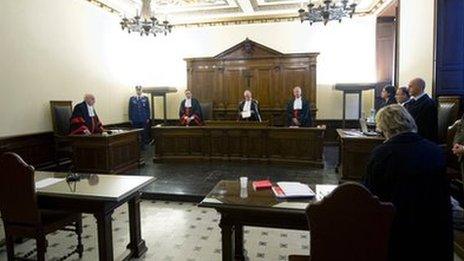
- Published5 November 2012
